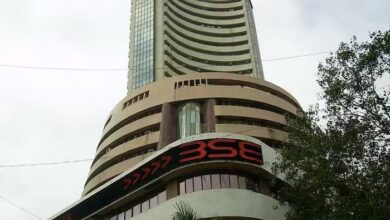Report: With education inflation at 12%, take action with wise investments and affordable loans
According to a recent survey by BankBazaar, the cost of school and college education in India has been increasing significantly, with rates at 11–12% compared to the general cost price index (CPI) inflation of 6%.
Every six to seven years, education costs may quadruple, placing a heavy financial load on families. According to the paper headlined Inflation, Education and Your Child, education expenditures are quickly overtaking property ownership as the second-largest expense for Indian families.
The paper used the example of a two-year MBA program at a top business school that cost Rs. 3 lakh in 2003, Rs. 16.6 lakh in 2013, and Rs. 24.6 lakh in 2023 to illustrate the education inflation. This is an average annual inflation rate of 11% over a 20-year period.
According to the research, the identical program would cost Rs 41.4 lakh in 2028 if future inflation stays the same.
Intelligent Investments Are Required
BankBazaar advised investors not to use child education and retirement savings plans, which combine investment advantages with insurance and give guaranteed returns, for the aim of investing for their kid’s education.
Instead, it advised investors to examine the yearly rate of return and determine if it outperforms education inflation.
The research also said that before making such investments, taxes, liquidity, and proper coverage for the family’s income requirements should be taken into consideration.
The research cautioned against combining investments and insurance since guaranteed returns can be much less than the amount required for schooling and early surrender might result in large losses.
According to statistics supplied by BankBazaar, systematic investment plans (SIPs), which on average provided returns of 12%, were the best chance to outperform inflation in the cost of higher education. The results, however, were not certain and may differ.
“Also, with a market-linked investment, such as a mutual fund, you also have the flexibility of liquidation at any moment of your choosing,” the article said.
Rates for Student Loans
The survey also said that taking out student loans was the best alternative when funds are insufficient to pay for higher education costs.
Data from BankBazaar shows that Central Bank of India gives the lowest interest rate for domestic higher education loans at 8.10%, followed by State Bank of India and Union Bank of India at 8.20% apiece.
Rates from Punjab National Bank start at 8.55 percent. Union Bank of India, Punjab & Sind Bank, and ICICI Bank all provided loans at 9.30% annual interest rates for people thinking about pursuing higher education overseas.







